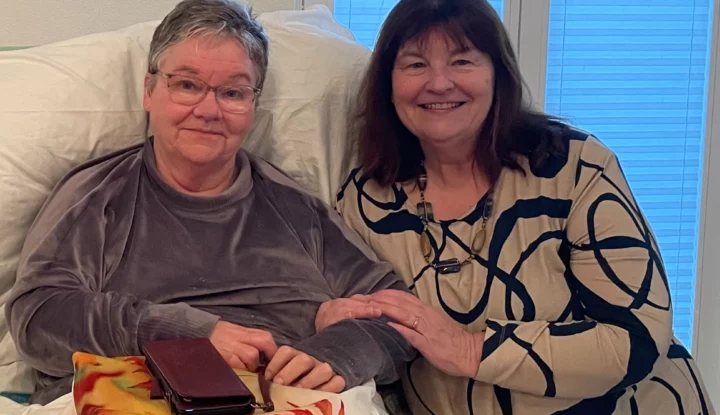The outrageous case of Sue Lawford, arrested, held in custody for 19 hours, and put under a criminal investigation for six months, for escorting a woman to an assisted death in Switzerland, again throws a spotlight on the inhumanity of England and Wales’ current laws.
As country after country around the world makes progress, we continue to be held back by the UK Parliament and Government’s refusal to act. Over 370 million people now have the right to an assisted death globally – with our neighbours Scotland and France looking increasingly likely to join them. The casualties are not just those destined to months, years, or a lifetime of suffering, but the friends and family criminalised for acts inspired by love.
Sharon had every right to a calm, peaceful death on her own terms in her own country. That Sharon suffered needlessly and Sue went through the ordeal of a criminal investigation isn’t right or just. Sue should be praised for her compassion in helping her, and I believe many will. 90% of people support a change in the law on assisted dying in England and Wales. There is no single issue that unites public opinion so strongly.
This isn’t an isolated case. One Briton a week travels abroad for an assisted death and there are countless others across the UK who are terminally ill or incurably suffering who wish for a similarly peaceful end to their life. These people face an impossible decision: pay over £10,000 to go abroad, or take matters into their own hands because friends and loved ones who help them face up to 14 years in prison. The result is countless heartbreaking stories of cancer patients refusing food for weeks, suicide pacts between partners, and lonely suicides of the most tragic kinds. Lives are often cut shorter than they would be in a more compassionate system.
How frustrating it is then that the UK Government has continually ignored calls to lift the UK’s blanket ban on assisted dying by stating it holds a neutral position. In May it allowed an assisted dying bill to stall by not dedicating enough time for it to reach a meaningful conclusion. The Bill had cross-party support in the House of Lords and a good chance of progressing through the House of Commons. No MP has introduced an assisted dying bill since 2015, despite major changes in medical opinion and a very clear public consensus – and there hasn’t been an inquiry into assisted dying since 2002.
Some politicians may be reluctant to address the issue, but those faced with the daily reality of pain and incurable suffering, like Sharon Johnston and countless others, do not share that same privilege. They need support now.
